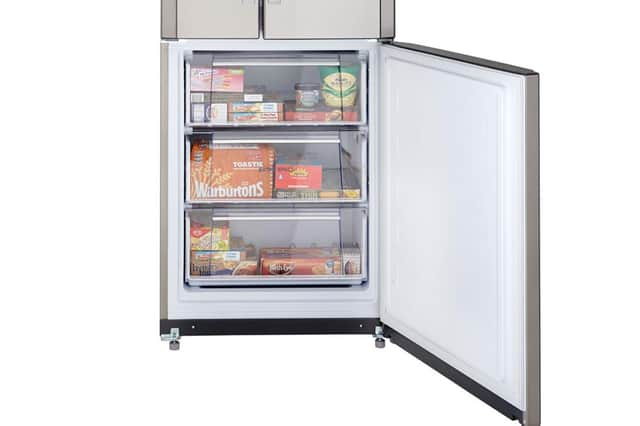The household products which the Government says will be cheaper post-Brexit


The Department for International Trade said the new regime - to be called the UK Global Tariff (UKGT) - will see duties axed on around £62 billion worth of imports, while tariffs will also be protected for industries such as agriculture, automotive and fishing.
Items such as dishwashers, freezers and even Christmas trees will see zero tariffs under the regime, while the Government said cooking products such as cocoa and baking powder will also be levy free.
Advertisement
Hide AdAdvertisement
Hide AdThe UK will also see thousands of tariff variations on products scrapped - including more than 13,000 tariff variations on products including biscuits, waffles, pizzas, quiches, confectionery and spreads.
The UK Global Tariff will replace the European Union's external tariff on January 1, at the end of the transition period, and will see 60% of trade come in tariff-free under the plan.
The Government said around £62 billion of imports overall will be levy free, including £30 billion on imports to the supply chain.International Trade Secretary Liz Truss said: "Our new Global Tariff will benefit UK consumers and households by cutting red tape and reducing the cost of thousands of everyday products.
"With this straightforward approach, we are backing UK industry and helping businesses overcome the unprecedented economic challenges posed by coronavirus."
The Government said it would maintain a 10% tariff on cars, as well as those on agricultural products such as lamb, beef, and poultry to protect British industry.
It has also set a temporary zero tariff rate on some products used to fight Covid-19 which would otherwise charge a levy under the new regime, though it added that most pharmaceuticals and medical devices - including ventilators - are set to be tariff-free.
The 10% tariff on cars could add to the cost of vehicles from European manufacturers if a trade deal with Brussels is not struck by the end of the year.
The tariff schedule will apply to all countries that the UK does not have a trade agreement with.
Advertisement
Hide AdAdvertisement
Hide AdTalks between the UK and EU have made little progress so far, with Government insiders describing the latest negotiating session as "tetchy".
Products set to be tariff-free under the Government's new post-Brexit tariff regime include:
- Dishwashers (down from 2.7%).
- Freezers (down from 2.5%).
- Sanitary products and tampons (down from 6.3%).
- Paints (down from 6.5%) and screwdrivers (down from 2.7%).
- Mirrors (down from 4%).
- Scissors and garden shears (down from 4.7%).
- Padlocks (down from 2.7%).
- Cooking products such as baking powder (down from 6.1%), yeast (down from 12%), bay leaves (down from 7%), ground thyme (down from 8.5%) and cocoa powder (down from 8%).
- Christmas trees (down from 2.5%).
More than 100 products to back a sustainable economy will also be tariff-free, such as:
- Thermostats (down from 2.1%).
- Vacuum flasks (down from 6.7%).
- LED lamps (down from 3.7%).
- Bike inner tubes (down from 4%).
A message from the Editor:Thank you for reading this story on our website. While I have your attention, I also have an important request to make of you.With the coronavirus lockdown having a major impact on many of our advertisers - and consequently the revenue we receive - we are more reliant than ever on you taking out a digital subscription.Subscribe to scotsman.com and enjoy unlimited access to Scottish news and information online and on our app. With a digital subscription, you can read more than 5 articles, see fewer ads, enjoy faster load times, and get access to exclusive newsletters and content. Visit https://www.scotsman.com/subscriptions now to sign up.
Our journalism costs money and we rely on advertising, print and digital revenues to help to support them. By supporting us, we are able to support you in providing trusted, fact-checked content for this website.
Joy Yates
Editorial Director